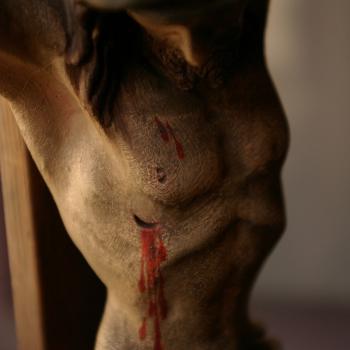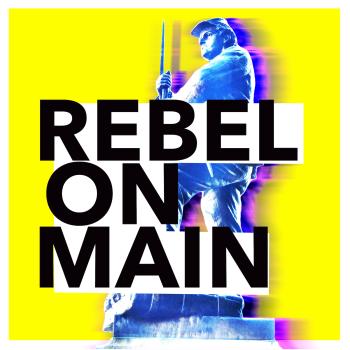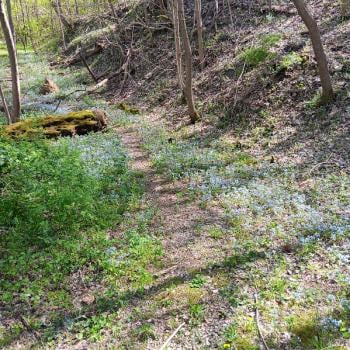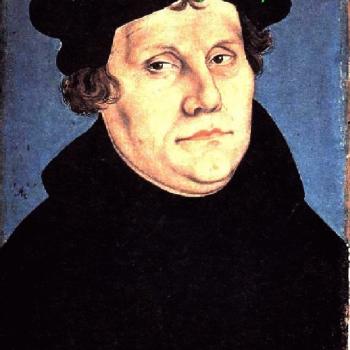During the last week or two of January 1962, my mother and I were in the kitchen doing dishes and talking about the Mormons. I don't know which of us said it first, but we decided we would like to be baptized. However, since my father was still not sure what to think, we agreed not to say anything to him. Though I found comfort in the fact that the missionaries could answer any question I put to them, he was bothered by that. He didn't believe someone could have all the answers (and, of course, they didn't, but we didn't know that then). Mom and I waited for him to make up his mind. Shortly thereafter, perhaps even the same day, I don't remember, my father came to us saying, "I don't know about you, but I've decided to join the Mormon Church." Looking back, I suspect he was telling my mother, not me, but it seemed then that he was telling both of us.
Within a day or two the missionaries came by once again. When we opened the door, one of them said, "We have something we have to tell you." My mother answered, "First, let us tell you something: we have decided to be baptized." Needless to say, they were surprised. From their perspective, they had been teaching us for eight months or more and, though we had become friends of the Church, we were not close to being baptized. We were wasting their time, and they had come to tell us that the mission president had advised them not to continue to work with us.
We wanted to be baptized right away, but since we were very involved in the First Christian Church of San Antonio, we had to make some arrangements. We had, at least, to tell the minister, Dr. Sandlin, what we were doing. Not to do so would have been rude as well as disruptive since my father was one of the church's elders, and it was at Dr. Sandlin's urging that I had begun to think about a career in the ministry. Besides, the missionaries said we needed to attend an LDS service at least once, something we had never done.
Dr. Sandlin took the news of our conversion poorly to say the least. He came to our house and spent some time with us trying to talk us out of making the change. It was the first time I heard anyone talk about the Mormons as cultists. Though that isn't the word he used (no one did then), that was the message he brought. Dr. Sandlin was sincere and he was our friend, so all of us cried together as we talked about our leaving. But we didn't change our mind.
Our goodbyes said, within a few days we went to an LDS church service for the first time, ready to be baptized. The truth is, though, that I did not yet have much of a testimony. Regardless of what I told the missionaries when they asked, I hadn't prayed about the truth of the Church's teachings. I also hadn't read anything from the Book of Mormon except the passages they had marked, though I said I was reading if they asked. I liked them. I thought what they taught made sense, and I didn't want to let them down. Lying was an easy way to deal with their questions. But I didn't have much of a testimony, partly because I had no idea what a testimony was. I felt good about my decision, but other than the feeling that the teachings made sense and feeling comfortable when we talked about Mormon doctrine, I had little spiritual confirmation of what I was learning.
In those days it was customary for missionaries to ask investigators not to take the Sacrament. The missionaries told my parents, but no one thought to tell me. For the Disciples, it is a point of doctrine that everyone takes Communion. So, after the bread was blessed and when it was passed to our row, I took a piece of bread and put it in my mouth.
Suddenly I was overcome from head to toe. The Spirit moved me and told me that the Church is true in a way that I could not and cannot deny. I knew it. That is the only honest way to describe the result of my experience: I had new knowledge, knowledge that the Church of Jesus Christ of Latter-day Saints is Christ's church. Though I was no Paul, neither in my previous opposition nor in the power of this experience, I knew something about what Paul's experience was like. The decision to be baptized was no longer mine; it had become something I had to do. Nothing else mattered. On 3 February 1962, my parents, my younger brother, my maternal aunt, and I were baptized.
Since then I have had a few occasions when I've felt the Spirit in something like the way I did that Sunday, but never as powerfully as I did then. Since then I've sometimes run up against spiritual obstacles -- personal foibles, intellectual difficulties, simple weakening of faith -- but I've continued because that experience of almost forty-six years ago remains the foundation and touchstone of my faith. Recalling it has kept me going when it would have otherwise been easy to leave. The truth was given to me in that moment, and it continues to be the foundation for my life.
James Faulconer is a philosophy professor at BYU, and sometimes-blogger at timesandseasons.org and feastupontheword.org.




